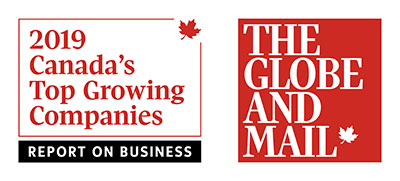It Pays to be Concise

In the business world, having good writing skills is essential. Whether you’re a consultant presenting a work summary to a client, a salesperson pitching a new lead, or a team leader submitting a report to your CEO, you need to know how to write in a way that gets your message heard. You have a finite window to get buy-in from a stakeholder, and you have to use it wisely.
We commonly believe that “more” means “better”. More words, more buzz, more adjectives, more complex language. But when it comes to writing, the emphasis on “more” can greatly hinder the “better” because it buries the message underneath layers of bells and whistles.
Anyone can write more, but it takes a skilled writer to tell their story with less.
Keep it Short and Simple
Knowing when to stop a sentence can be difficult, especially when it tries to convey a complex subject. Sometimes you simply can’t figure out how to wrap up a thought. Before you know it, the piece you’re writing is filled with runaway sentences that have turned into a marathon read.
When your sentence contains more than 17 words, you risk losing your meaning.
To avoid this, map out your message before you start writing. Think through what you want to say before you write it and have confidence in your message. This will allow your writing to quickly get to the point by reducing the number of words you use. It solidifies the message in your mind, and helps eliminates roundabout phrases and hedging of words.
If you have confidence in your message, you will know the shortest route to get to it.
How to Separate the Necessary from the Unnecessary
Many writers make the mistake of thinking “but it needs to be detailed to be understood”. While some detail is important to put meat on the bones of your thought, too much detail fogs up your writing. So, the challenge every writer faces is how to separate the necessary details from the unnecessary ones.
To start that process, you need to have a clear understanding of two things: What is my point, and who is my audience? The answers will determine how much detail and complexity your writing needs.
When you know a subject well, you can communicate it simply and concisely; but what happens when your audience doesn’t have the same level of expertise? This is where it’s easy for business writers to get into the “overexplaining with extraneous details” trap.
To remedy this, remember that it takes time and effort to make things sound simple, so give yourself enough time to plan and write. Make sure you understand who your audience is, map out how you’re going to get them to your ultimate message, and adjust the complexity of your writing accordingly.
“If you want me to give you a two-hour presentation, I am ready today. If you want only a five-minute speech, it will take me two weeks to prepare.”
Mark Twain
As a last check, get a fresh perspective from a colleague not familiar with your content. If they don’t get the point you’re trying write, go back to the drawing board.
Do More with Less
Over-complication and clutter are common hazards in business writing and can bury the story you’re trying to tell. Take the time to know your message and understand your audience, and let that inform you on what’s necessary to create clear and straightforward content.
The easier you make it for your reader, the more likely they are to want to read your message.




 English
English







